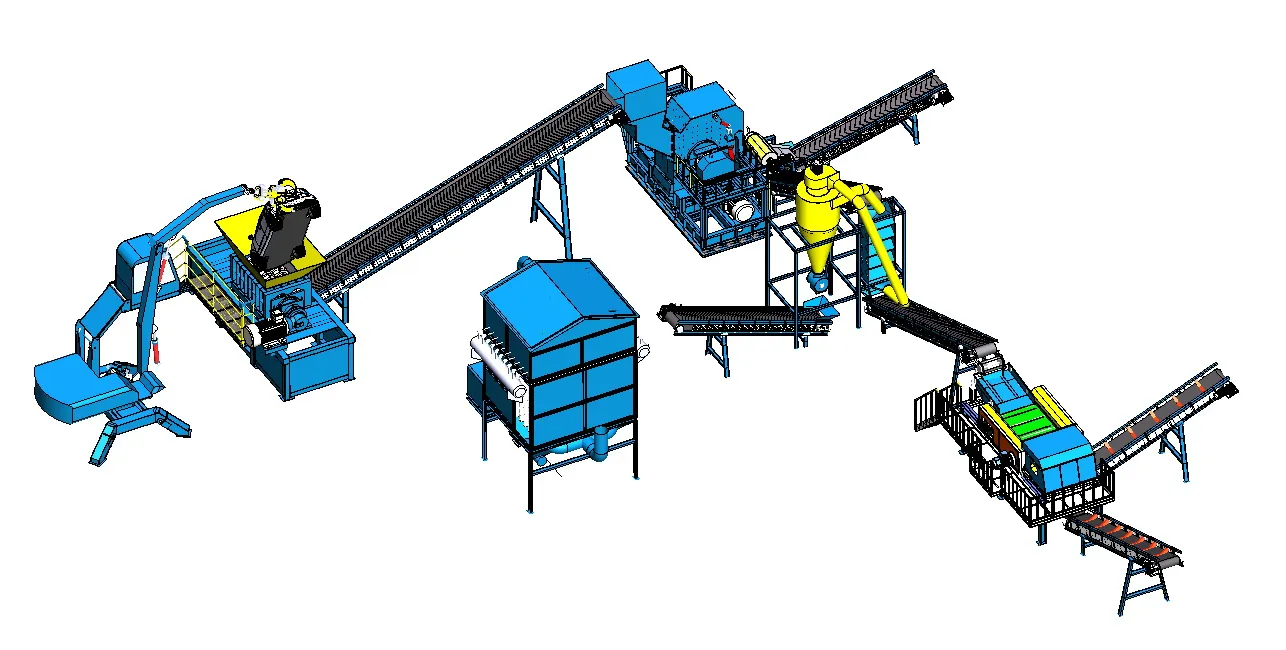Recycling electronics is a critical component of modern waste management, offering both environmental and economic benefits. With the rapid advance of technology, electronic waste, or e-waste, has become one of the fastest-growing waste streams globally. While some people are aware of the necessity to recycle their outdated or broken electronics, many are still unsure of how to do it effectively. Here is an expert guide providing you with insightful, practical, and trustworthy steps to recycle electronics responsibly.

First and foremost, understanding the components of your electronics is crucial. Electronics such as smartphones, laptops, and televisions contain hazardous materials like lead and mercury, along with precious metals like gold and silver. These materials, if improperly disposed of, can harm the environment and human health. However, when successfully recycled, they can be recovered and reused, lessening the need for virgin materials.
Begin by assessing your electronic items. It is essential to distinguish between electronics that still have utility and those that need to be recycled. If a device is in working condition, you might consider donating it to charities or giving it to someone who might find it useful. Organizations such as Goodwill and the Salvation Army accept used electronics that they refurbish and sell.

For those devices beyond repair or usability, recycling becomes the next viable option. Locate certified e-waste recycling centers where professionals are equipped to handle and process electronics safely. The EPA (Environmental Protection Agency) recommends using certified recyclers who comply with rigorous standards, ensuring that e-waste is recycled correctly and environmentally safe.
Before recycling, remember to secure your data. Data theft from improperly disposed electronics is a genuine concern. Always back up any essential information and perform a complete wipe of your device's drives to prevent unauthorized data recovery. Various software programs can assist in securely erasing data from devices like computers and smartphones.
Once your data is safe, remove any batteries from your electronics, as they often need to be recycled differently due to their chemical components. Many national retailers have dedicated programs for collecting and recycling batteries, which can complement your e-waste recycling efforts.
how do you recycle electronics
Participate in electronic take-back programs. Many manufacturers and retailers offer take-back programs where they accept old electronics free of charge. Companies like Apple, Samsung, and Best Buy have programs in place that make it easier for consumers to recycle their gadgets. This approach not only ensures professional handling of e-waste but also often gives consumers incentives like discounts on future purchases.
Be mindful of state and local regulations regarding electronic disposal. Different areas have varying laws and guidelines, and failure to comply can result in fines or other penalties. The National Center for Electronics Recycling (NCER) provides resources and information about e-waste regulations and recycling options in various regions.
Moreover, consider the lifecycle of products before purchasing. Opting for electronics with longer warranty periods, availability of spare parts, and designs prioritizing durability and reparability can significantly reduce the frequency of e-waste. Choosing products from companies committed to sustainable practices also promotes a more eco-friendly consumer culture.
Lastly, stay informed. E-waste management is an evolving field, with new technologies and methods being developed to increase recycling efficiency. Engage with communities and participate in workshops, both online and offline, to stay updated on best practices and contribute to collective efforts in mitigating the impact of electronic waste.
In conclusion, recycling electronics is not merely an act of disposal but a conscientious participation in preserving resources and protecting the environment. By thoroughly understanding the detailed processes, actively participating in recycling programs, and making informed purchasing decisions, each of us can contribute significantly to the responsible management of electronic waste.



